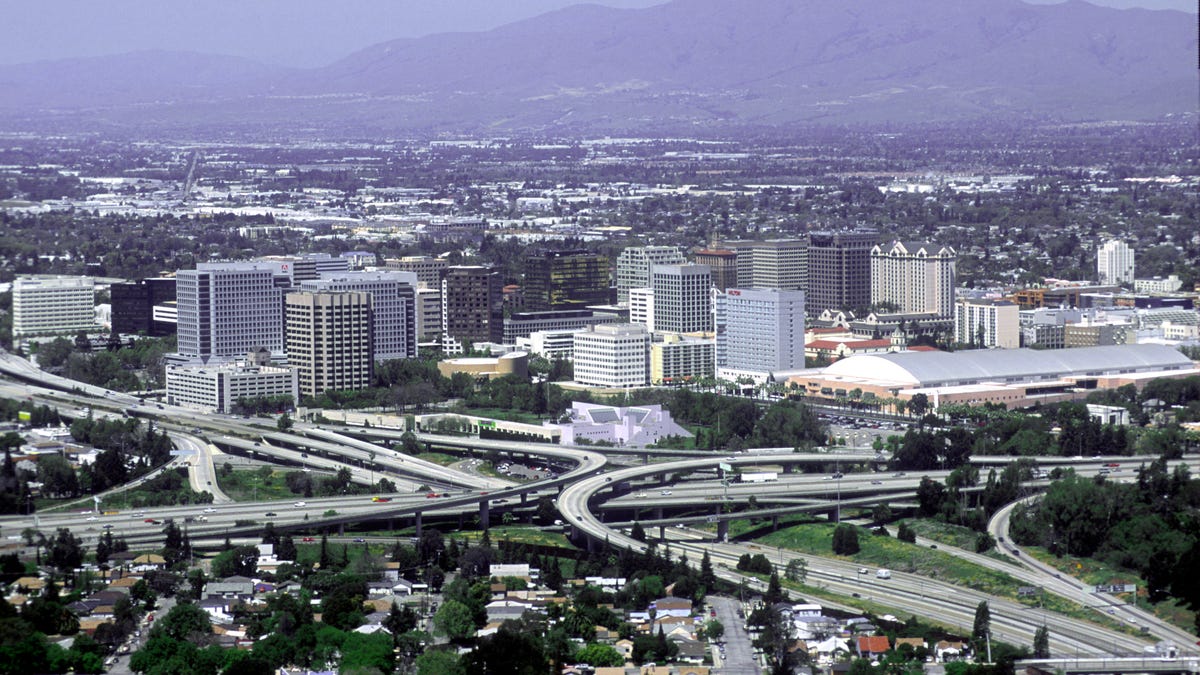Silicon Valley Index shows the misery and triumph of the world's tech capital
Soaring costs and soul-crushing commutes aren't stopping the economic engine. At least not yet.

Living at the center of the tech universe? Well, I have some good news and some bad news.
The good news is that Silicon Valley is thriving economically, generating new technology and good jobs. The bad news is that, for all its world-changing innovation, it's becoming an even worse place to live.
"We're a massively dysfunctional region," said Russell Hancock, president and CEO of Joint Venture Silicon Valley. The struggles are revealed in the latest annual assessment of the area, the 2019 Silicon Valley Index, which his nonprofit published Wednesday.
"We've got the worst transportation in the nation, and we're not doing a single thing about it. We've got the highest housing costs in the nation and we don't seem to be doing anything about that, either," Hancock said. One result: For the third year in a row, more people left the area in 2018 than arrived, he said.
Venture capital exploded in Silicon Valley and San Francisco in 2018.
It's a profound quandary for residents of Silicon Valley and the San Francisco Bay Area more broadly. No place is perfect, but the problem puts sand in Silicon Valley's economic engine.
Companies have difficulties attracting and retaining employees who blanch at the prospect of multimillion-dollar mortgages and soul-sucking commutes. Facebook, Apple and Google can compensate with high salaries, but that doesn't help the teachers, police officers, waiters and others not on a tech-industry budget, and it means kids have a harder time getting started without wealthy parents.
"The irony is we invented the technology that created the problem," Hancock said. Computerization has replaced armies of assistants, junior staffers and service personnel.
Joint Venture Silicon Valley, which has regional mayors, businesspeople and educators on its board, has tracked Silicon Valley's social, economic and business trends since 1995. It counts a range of cities in its definition of Silicon Valley stretching from just south of San Francisco all the way southeast to Gilroy, the self-described garlic capital of the world. It's now publishing many San Francisco statistics, too, since the city has become part of the tech hub.
Among the findings of the 2019 index:
- About 36,000 new jobs came to Silicon Valley between the second quarters of 2017 and 2018, a 2.2 percent increase to nearly 1.7 million. The average income is $140,000, more than double the US average of $68,000.
- Median home prices -- the cost for which half of the area's homes were more expensive and half were less expensive -- rocketed up 21 percent from 2017 to 2018, reaching nearly $1.18 million. In 2000, it was about $700,000. For comparison, the median US home price was $221,000 in 2018.
- The average time spent commuting has increased 20 percent from 2007 to 2017, which means the commuter spends 43 hours more each year in transit. For San Francisco, the increase was slightly less at 15 percent.
- For Silicon Valley, 6.5 percent now are "megacommuters" who spend three hours in transit. That's up from 3 percent in 2011.
Silicon Valley home prices surged 21 percent from 2017 to 2018.
Silicon Valley "megacommuters" who need at least 90 minutes to get to or from work are on the increase.
- Women account for 28 percent of employees at the 10 largest tech companies, but only 19 percent of their technical or leadership staff.
- Infant care and preschool costs increased between 30 percent and 57 percent from 2012 to 2018, depending on the age of the child and the type of school. The average 2018 preschool cost, for example, increased from about $11,000 to $15,000.
- Overall, about 20,000 more people from out of the country arrived in Silicon Valley than left in 2018. The opposite was true for the US, where departures were about 23,000 more than arrivals. The net population dropped about 2,000 in 2018. "Immigration is our lifeblood. There is no Silicon Valley if there is no immigration," Hancock said.
More left Silicon Valley in 2018 than arrived.
- Since 2000, the percentage of voters registered as Democrats wavered slightly between 45 and 50 percent, but the number of Republicans dropped from about 30 percent to 17 percent while the number of independents increased from 18 percent to 33 percent.
- Silicon Valley likes its electric vehicles. Cumulative sales have risen to at least 48,000 through 2018 -- at 18 percent of the state's total sales, though the true number is likely higher since the state can't count EV sales to wealthier customers who aren't eligible for rebates. Nissan and Chevrolet claim 22 percent each of those sales and Tesla 21 percent.
- Homes and businesses in the area have installed a total of 481 megawatts of solar energy generation capacity through 2018.
- And venture capital investments surged from 2017 to 2018. In Silicon Valley, the increase was 31 percent to about $19 billion, but San Francisco outpaced that, nearly tripling to $31 billion.
"It's an amazing economy. There's no other place that creates opportunity as we do," Hancock said. "The nation's political capital is Washington, DC, the financial capital is New York, we have the entertainment capital in Hollywood. Silicon Valley will always be the capital of innovation. It's always where we push the boundaries and disrupt the existing industries. I don't see anything stopping that."

